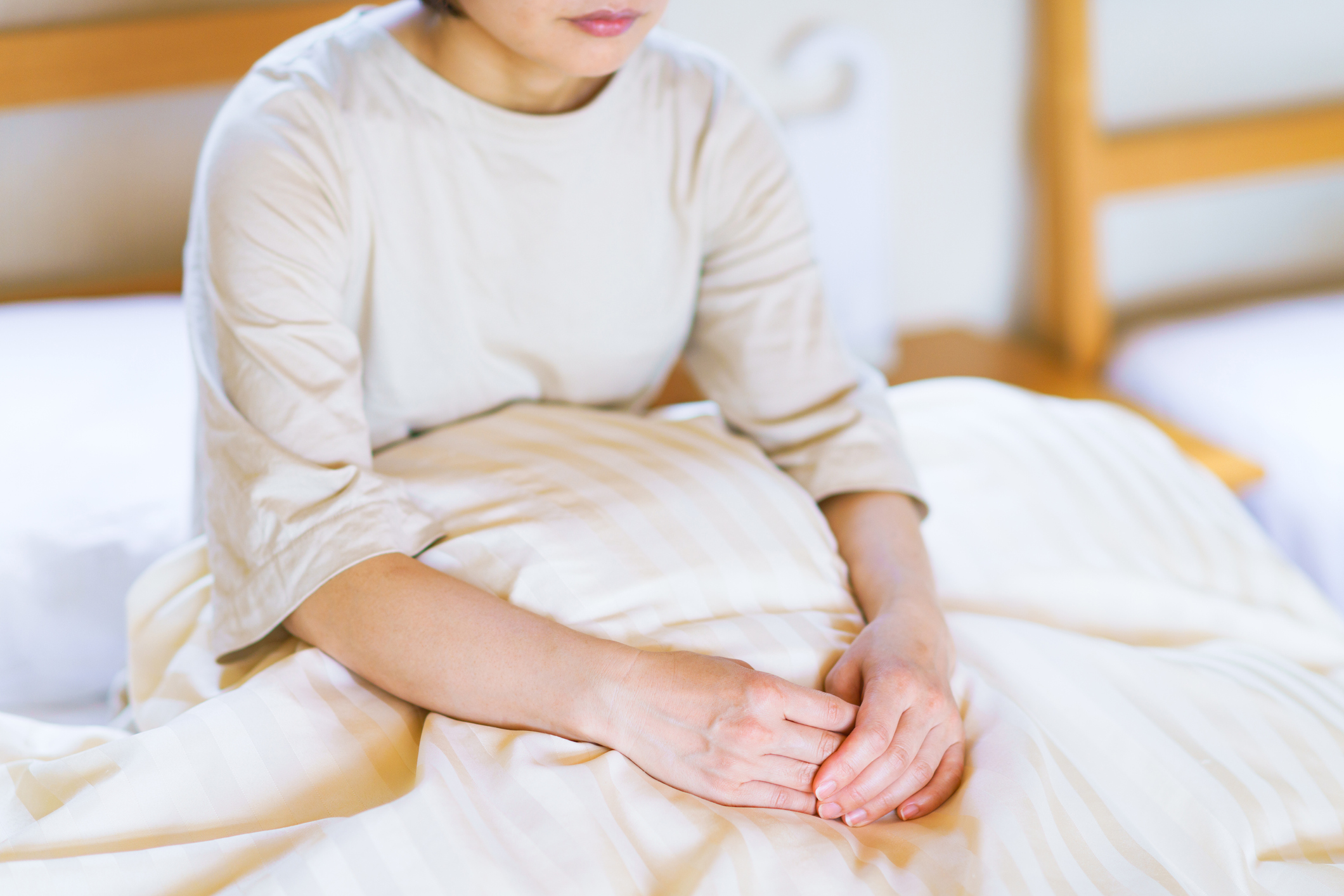Get Easy Health Digest™ in your inbox and don’t miss a thing when you subscribe today. Plus, get the free bonus report, Mother Nature’s Tips, Tricks and Remedies for Cholesterol, Blood Pressure & Blood Sugar as my way of saying welcome to the community!
The strong connection between bad sleep, bad attitude and bad aging

Sleep is increasingly important as we age because of its impact on our physical and cognitive health. Yet it becomes harder to come by as we enter our 50s. Some studies have found as many as half of older adults find it difficult to initiate or maintain sleep.
I can vouch for this. In the past year, I’ve gone from being able to sleep effortlessly through the night to consistently waking up at 3 or 4 a.m. I usually spend a futile 20 to 30 minutes staring at the ceiling before giving up and starting my day before the crack of dawn.
Since this started, I’ve definitely been grumbling more about getting old. It’s hard to look at aging positively when I’m constantly sleep-deprived. But it’s an attitude that I know I need to change, especially when research shows it can affect how I age from here on out…
The less sleep you get, the worse you feel about aging
According to a study led by the University of Exeter in the United Kingdom, when people over the age of 50 experience poor sleep on a regular basis, it can cause them to be more negative about aging. This in turn can harm physical, mental and cognitive health.
Researchers surveyed 4,482 participants in the PROTECT study who are age 50 and older. PROTECT is an online study co-led by Exeter and King’s College London in which participants take regular cognitive tests and fill out lifestyle questionnaires so that researchers can determine what helps people stay cognitively healthy later in life.
The sleep study was prompted by the number of questionnaire responses from PROTECT participants about their relationship with sleep. One participant commented, “How I feel fluctuates widely depending on my sleep. I feel great if I get six hours so about half the time I feel younger and half the time I feel older!”
As a result of these and similar comments, the Exeter researchers specifically asked participants whether they had experienced negative age-related changes such as poor memory, less energy, increased need for help from others, decreased motivation and limits to activities. They also had to rate the quality of their sleep.
Results showed people who gave the worst rating to their sleep also felt older and had a more negative outlook about their own physical and mental aging.
“As we know that having a negative perception of aging can be detrimental to future physical health, mental health and cognitive health, an open question in aging research is to understand what makes people more negative about aging,” says lead author Serena Sabatini of Exeter. “Our research suggests that poor sleepers feel older and have a more negative perception of their aging.”
“This research is an important part of the growing body of evidence about the crucial role of sleep in healthy aging,” says Clive Ballard, an Exeter professor.
Safe answers to better sleep
If you’ve struggled with insomnia as I have, you know there are many different approaches to dealing with it. Medication is one route, whether it’s an over-the-counter or prescription sleep aid. But it’s not recommended as a long-term solution and can actually be dangerous for those over 65.
Luckily, more natural alternatives are available. Melatonin supplements are often recommended for older adults suffering from poor sleep. This is because production of this “sleep hormone” declines as we age.
But some people become desensitized to melatonin. That may mean they’re using it too often, or they may have a vitamin deficiency…
Vitamin D levels can affect how effective melatonin is for you because it’s essential in the natural production of melatonin in the body. People over 50 tend to be deficient in vitamin D because the natural process through which sunlight is converted through the skin works less efficiently.
It can take time for melatonin to work, so don’t take it as you’re climbing under the sheets. Instead, get into the routine of taking it at least an hour before your regular bedtime. And be sure to only take the amount the manufacturer recommends.
Routine is more than key to good sleep. Try to go to bed around the same time every night and create a real routine around that. Maybe you change into your PJs, wash your face and brush your teeth an hour before you plan to hop in bed. Don’t forget to put down your smartphone, or any blue light electronics that interfere with your circadian rhythm even earlier.
Editor’s note: Did you know that when you take your body from acid to alkaline you can boost your energy, lose weight, soothe digestion, avoid illness and achieve wellness? Click here to discover The Alkaline Secret to Ultimate Vitality and revive your life today!
Sources:
Poor sleep linked to feeling older and worse outlook on ageing, which can impact health — University of Exeter
Insomnia in the Elderly: A Review — Journal of Clinical Sleep Medicine
The Truth About Taking Melatonin to Help You Sleep — University Hospitals













